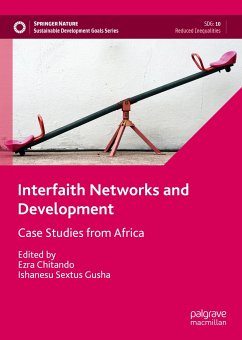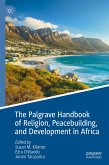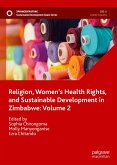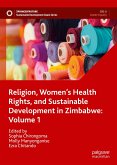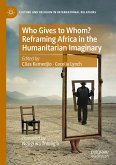Although there is growing interest in the role of religion in meeting the United Nations Sustainable Development Goals (SDGs), Agenda 2030, very few studies have focused on the contributions of interfaith networks. Most of the contemporary publications on religion and development focus on single religions or faith-based organizations. This volume addresses the lacuna in the available scholarship by undertaking detailed analyses of how interfaith networks in diverse African contexts contribute to development. Chapters in this volume engage in theoretical debates on interfaith networks and development, while describing concrete, fresh case studies on how particular interfaith networks are contributing towards the meeting of the SDGs in specific contexts. Thus, the volume describes older and newer interfaith networks and analyses their achievements and challenges. Contributors focus on SDGs that include peacebuilding, gender, youth, the environment, as well as overviews of interfaith initiatives in different African contexts.
Ezra Chitando is a Professor of History and Phenomenology of Religion at the University of Zimbabwe, and World Council of Churches Theology Consultant on HIV and AIDS in Africa.
Ishanesu Sextus Gusha was formerly a senior lecturer from University of Zimbabwe's Department of Philosophy, Religion, and Ethics. He is now parish priest in Palma de Mallorca, Spain in the Anglican Diocese in Europe.
Dieser Download kann aus rechtlichen Gründen nur mit Rechnungsadresse in A, B, BG, CY, CZ, D, DK, EW, E, FIN, F, GR, HR, H, IRL, I, LT, L, LR, M, NL, PL, P, R, S, SLO, SK ausgeliefert werden.

